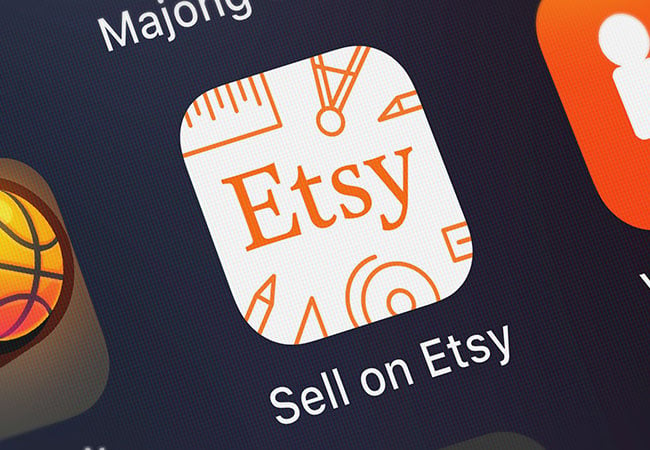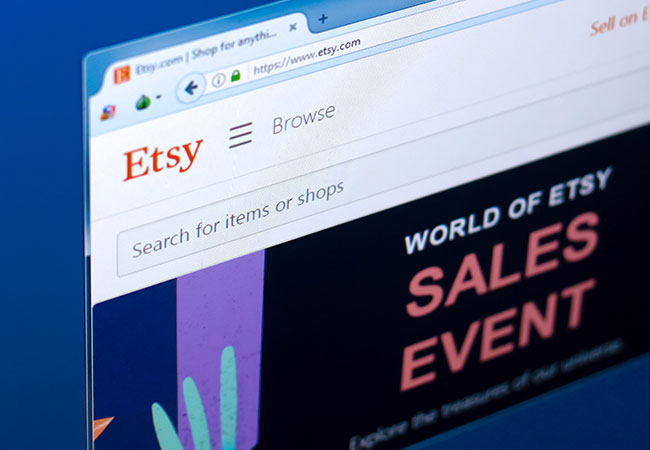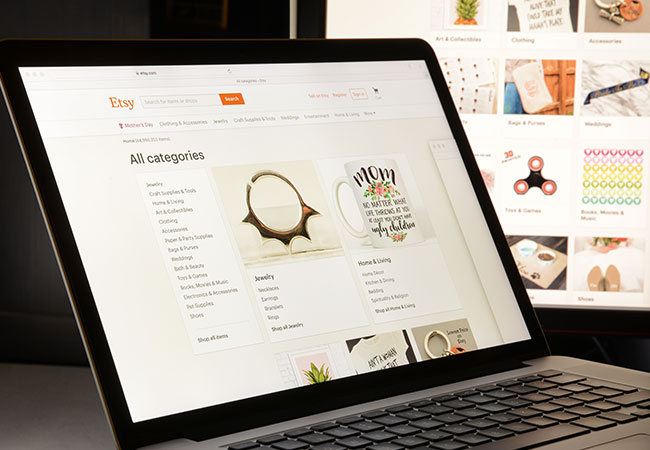
There are many ways to create an online shop so you can start selling your products. One of the easiest ways to get started is with Etsy, available at https://www.etsy.com
Here are just a few reasons:
With an Etsy shop, you can easily build a mailing list of buyers and maximise your income faster and easier than ever before! Mainly because you are in direct contact with your customers!
In addition, you will never be dependent on just one marketplace. You’ll be able to cultivate a tribe of buyers and build a brand that you’re in full control of. There’ll be no guesswork. You’ll know where your buyers come from and what they’re interested in. The ability to create additional products they’ll want to buy. Making money online will never be easier once you’ve built that community of followers.
Plus, people are already searching for printables on Etsy! You’ll be able to instantly tap into an ever-growing customer base that are active on the marketplace. So even if you don’t launch your own marketing campaigns, chances are you’ll be able to start generating sales from Etsy’s existing traffic. Easy!
Most importantly, there are valuable tools that make it easy to create great looking Etsy listings. Resources like https://www.marmalead.com are priceless. It will help you break down your existing Etsy listings ways to improve your outreach and grade your listings based on focus keywords, exposure and more!
When it comes to creating an Etsy shop, you’ll want to firstly choose a Shop Name. Then customize your storefront so it clearly represents your brand. This includes a high-quality shop banner, memorable logo and shop description/tagline, and of course, in-demand printable products. Let’s get started!

Head over to https://etsy.com and create your account.
Make sure to fill in all the profile and account areas. This includes your payment information and address details. The nominated payment card will allow Etsy to charge you for each listing whenever it needs to be renewed. You will also want to set your shop preferences including shop language, country and currency.
Next, make sure to set your shop name so it’s the exact same name as your blog (if you plan to create one, and I recommend you do!). The key is to be consistent across all platforms. Your shop name can be between 4-20 characters and shouldn’t contain any spaces or special characters. Whatever shop name you assign will also become your Etsy web address and will look something like this: keyword.etsy.com

The next step will be to stock your shop with at least one printable product. For example a Personalised Poster.
Note that you can’t create an Etsy shop without having at least one available product. So if you have yet to create your first printable offer, you’ll want to do that first and then return to your Etsy account to complete the process.
Each product listing can include up to 10 images and you’ll want to use every available space. However, you don’t need to have all 10-graphics ready. When adding your first product listing, you can always start by just adding one image and then go back and adding additional images later.

Set your payment preferences, including how you wish to be paid (Paypal, cheque or money order, etc.)
Then, set up billing. You’ll need to add a credit card to your account.

Now that you have a brand-new Etsy account, it’s time to customise your shop! The important thing is to make sure all your images look-alike while highlighting the different products.
You want to build a cohesive and memorable brand. If you look at the top printable sellers on Etsy, they all use a set colour scheme and stick to it. Not only does it look more professional, but it helps people to recognise your brand whenever they see your pins or visit your blog. Consistency is key to become a successful and recognised brand.
Creating your shop graphics doesn’t have to be difficult or time consuming. My personal “trick” is to create one set of templates using a resource like Canva.
You can then re-use them over and over again by replacing the product snapshots with ones that represent the current product offered. It’s always best to create printables based on evergreen, time-tested markets. That way you can figure out a way to put your own unique twist on each product. By doing so, you’re offering something fresh and new, while still sticking within those popular, established niches that are continuing to grow.
We hope you found this beginners guide to setting up your Etsy Shop useful. Watch out for our Etsy Launch your Shop article!
Unlock 5%! Subscribe & Save
Copyright © Cheap as Prints 2025
We use cookies to enhance your experience. By continuing, you agree to our Privacy Policy.
Select which cookies you want to allow:
Save 5% on your order when you subsribe to our newsletter.